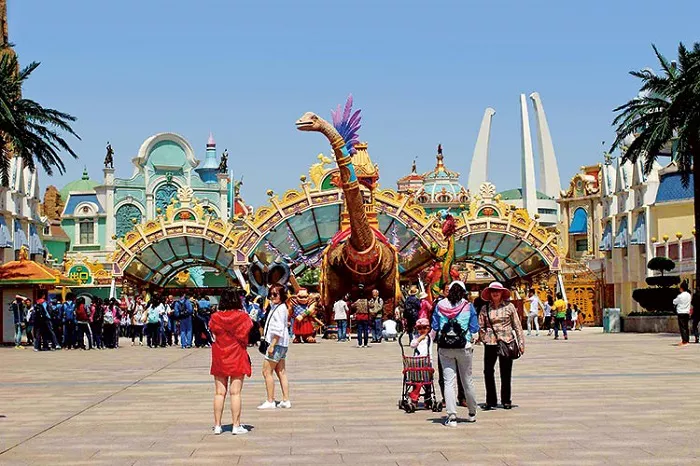China’s theme park industry is experiencing unprecedented growth, driven by surging domestic demand and sustained investment from both domestic and international players. As the sector enters a transformative phase, it is quickly becoming a key pillar of China’s tourism and leisure economy.
The strength of this demand was on full display ahead of the Legoland Shanghai Resort’s official July 5 opening. A day before the announcement, its online mini-program crashed due to overwhelming traffic, underscoring the growing appeal of what many are calling the “happiness business.”
In 2023, China’s amusement park economy reached nearly 60 billion yuan (approximately $8.3 billion). Industry forecasts indicate this figure will almost double by 2028, surpassing 110 billion yuan and reinforcing China’s position as a premier destination for global theme park investment.
International brands are accelerating expansion efforts. Shanghai Disneyland recently unveiled plans for its first Marvel-themed attraction and is constructing a third themed hotel. Hong Kong Disneyland is also enhancing its Marvel offerings and will introduce new Pixar-themed entertainment. Meanwhile, Universal Beijing Resort is advancing its second-phase development, and construction of Legoland Shenzhen is progressing rapidly. Additional projects in the pipeline include the world’s largest Peppa Pig outdoor park and the Harry Potter Studio Tour, both slated to open in Shanghai by 2027.
Domestic companies are making equally aggressive moves. Fantawild, one of China’s leading local players, opened nine parks within just eight months in 2023. Pop Mart is redeveloping two-thirds of its City Park in Beijing and preparing for a second-phase launch next year. Across the country, more than 50 new theme parks are currently under development or expected to open this year, featuring themes ranging from cinema and gaming to marine life, winter sports, forest exploration, and water attractions.
Despite this growth, market penetration remains relatively low. As of September 2023, only 27 percent of China’s population had visited a theme park, compared to an average of 68 percent in developed nations. This substantial gap points to significant growth potential. The market is projected to grow at a compound annual rate of 7.2 percent over the next five years, with many cities aiming to establish theme parks as signature local attractions.
Beyond entertainment, the sector is also playing a transformative role in local economies. According to Siegfried Boerst, Managing Director of Legoland Resorts in China, the Legoland Shanghai Resort is introducing several global firsts to meet rising consumer expectations. He emphasized that the park will boost the regional economy, generate employment, and enhance Shanghai’s appeal on the global tourism stage.
By October 2024, China was home to 385 operational theme parks, including 87 categorized as large or super-sized—each occupying over 600 mu (approximately 40 hectares) or involving investments exceeding 1.5 billion yuan.
As investment continues to pour in and consumer appetite for themed experiences grows, China’s theme park sector stands on the brink of becoming one of the world’s most dynamic and influential entertainment markets.


